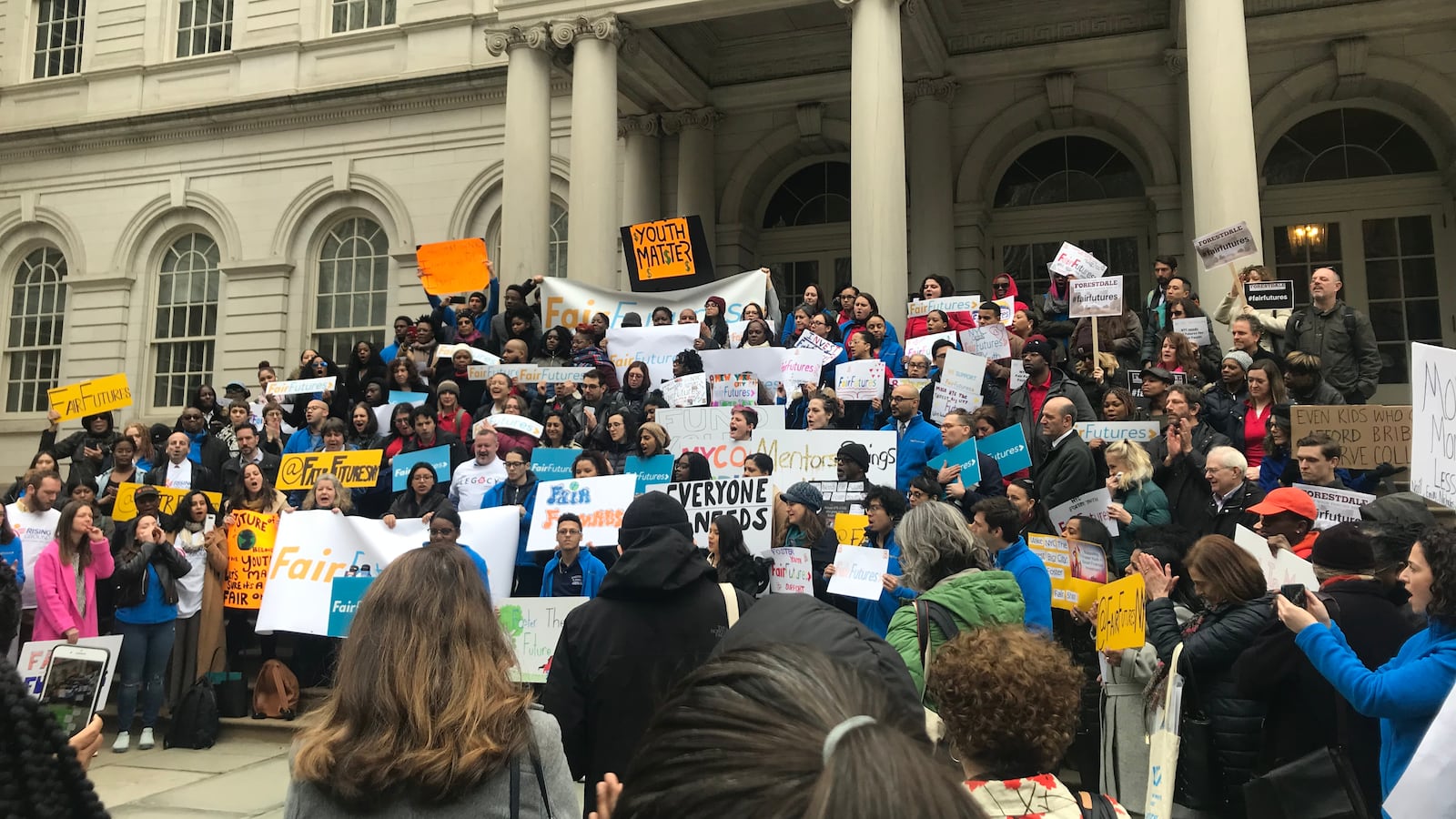A year after a city task force laid out an ambitious action plan for better serving children in foster care, city education officials promised to ensure more students in foster care are using academic enrichment and mentoring programs.
But that effort — largely building on what already exists — still falls short of what advocates and elected officials want in a new push to support those students.
“It’s good that someone is thinking about how to connect kids in foster care to existing DOE programs, but we think that more is needed,” said Randi Levine, policy director at advocacy group Advocates For Children New York.
Last March, the Interagency Task Force on Foster Youth outlined specific ways that city agencies could improve the lives of the estimated 6,000 New York City students navigating the foster care system. The task force recommended education officials explore employing guidance counselors dedicated to students in foster care, as well as finding ways to provide tutoring and social-emotional supports for middle-schoolers. Additionally, it identified ways to improve services and “regulatory oversight” of foster care students.
In response to those findings, the education department has committed to several goals, some by this fall: pairing more foster students with Success Mentors, who check up on chronically absent students; finding and linking foster students with academic enrichment or after-school programs; and ensuring middle-school foster students are part of the Middle School College Access for All program, according to an update provided by the task force.
The new report also cites the department’s plan to hire 100 school-based coordinators to assist students in temporary housing, which was announced late last year. Additionally, the department plans to release a “comprehensive guide” of foster student rights by this spring and incorporate information about foster care into trainings at its borough offices and for school-based designated liaisons by this fall.
Education officials did not answer specific questions about their response to the task force recommendations. A department spokeswoman acknowledged they had “a lot more work to do.”
“Strengthening our support for students in foster care is a priority for the 2019-20 school year, and we’re partnering with ACS to expand mentorship opportunities; increase access to after-school programs; and formalize guidance for schools, students in foster care, and families,” said Miranda Barbot, a spokeswoman for the education department, in a statement. “We’re making progress aligned to the task force recommendations, and we have a lot more work to do.”
As last year’s report describes, students in foster care who are constantly moving between new families and new schools are less likely to do well in school or create “sustaining supportive relationships” with teachers and counselors. About a fifth of students in foster care repeated a grade in the 2015-2016 school year compared to 6 percent of students citywide, according to the report. About a third of students in foster care were on track to graduate in 2015.
On Monday, 120 people rallied on the steps of City Hall, focusing on creating a comprehensive coaching program for students from middle school through age 26. They argued that this sort of program would help create a source of stability and help for students who need it the most.
“There is no one I know who has done life alone, and we cannot expect vulnerable youth to do so either,” said Dylan Tatom, who received one-on-one support as a child in foster care in New York City.
Two child welfare organizations — Graham Windham and The New York Founding — offer the kind of coaching program Tatom praised on Monday, but together those groups serve just 12 percent of youth in foster care, according to Fair Futures, the coalition pushing for a citywide program. And the city is currently supporting internship and mentoring programs for foster youth, according to the task force’s update, but advocates argue those efforts are not comprehensive enough.
About 80 child welfare agencies, non-profit groups, large foundations and a youth advisory group have formed the Fair Futures coalition, which wants the city to dedicate dollars annually to a coaching program. The coalition also has the support of Brooklyn Councilman Stephen Levin, who first introduced legislation in 2016 that created the Interagency Foster Care Task Force.
“We can no longer continue to set young people in foster care up to fail,” Levin said in a news release. “Offering them critical academic, career, and independent living support not only gives foster kids a chance to succeed, but will also save taxpayer dollars by curbing homelessness and improving graduation rates.”
Advocates envision the $50 million to be split between students of different age groups, according to a proposed breakdown of spending provided by Graham Windham, which is part of the Fair Futures coalition.
About $4.5 million would go toward a coaching and tutoring program for middle-schoolers, and part of that would be to help eighth graders figure out the high school selection process. The program would cost $24 million for students in high school and would pay for coaches, tutors and people who specialize in academics, employment, and housing. Another $18.9 million would be spent on coaches and specialists for adults ages 21 to 26.
The coalition believes that about $18 million of this cost could be obtained from state grants.
Getting this money into the city budget for next fiscal year will likely be an uphill battle. As the city predicts a gloomy financial outlook, the mayor has asked each city agency to make cuts — $104 million of that at the Department of Education.

